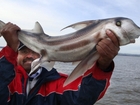The United States is facing an epidemic of herbicide-resistant "superweeds" that some activists and researchers are blaming on GMOs, an accusation rejected by industry giants.
According to a recent study, the situation is such that American farmers are "heading for a crisis."
 Full Story
Full Story
The elephant population in Tanzania, beset by poaching for ivory, has plummeted by two-thirds in the past three-and-a-half decades, the government said on Saturday.
The findings are the result of a census carried out at the end of last year in the country's parks and reserves with the largest elephant herds, Lazaro Nyalandu, junior minister for natural resources and tourism, said in a statement.
 Full Story
Full Story
European nations stand sharply divided over setting new 2030 targets to reduce greenhouse gas emissions blamed for global warming, EU sources said Friday.
European Commission head Jose Manuel Barroso called in commissioners to try to agree figures ahead of talks on January 22 but there was no progress, one source said.
 Full Story
Full Story
French fashion is getting smarter with the help of fabric woven with micro-sensors that can reveal when someone is weary or unwell.
France-based Cityzen Sciences was at the Consumer Electronics Show on Friday with shirts made of "Smart Sensing" material that reads body heat, heart rate, motion and location.
 Full Story
Full Story
Canada's closure of science libraries containing a vast repository of environmental data dating back more than a century has researchers worried that valuable books and reference materials are being lost in the name of cost-cutting.
Unique in its shore access to three oceans (Arctic, Atlantic and Pacific) and with the largest number of freshwater lakes in the world, Canada over the years has amassed a huge cache of books and scientific reports on fisheries, meteorology and wildlife -- on everything from beluga whales to songbirds.
 Full Story
Full Story
The gradual decline of large carnivores such as lions, wolves or pumas is threatening the Earth's ecosystems, scientists warned Friday as they launched an appeal to protect such predators.
More than 75 percent of 31 large carnivore species are on the decline, and 17 of them now occupy less than half of their former ranges, says a study published in the American journal Science and dated January 10.
 Full Story
Full Story
Indonesian officials said Friday they have rescued more than 8,000 baby pig-nosed turtles hidden in suitcases and thought to be destined for China and Singapore.
A total of 2,968 were discovered in four suitcases at the airport serving the capital Jakarta after arriving from the remote eastern Papua region, said Zaenal Abidi, quarantine official.
 Full Story
Full Story
A prehistoric fish that inhabits the waters off southern Australia and New Zealand evolves even slower than the coelacanth, a famous "living fossil" whose DNA has barely changed over hundreds of millions of years, scientists said Wednesday.
The genome of the elephant shark "is evolving significantly slower than other vertebrates, including the coelacanth", they reported in the journal Nature.
 Full Story
Full Story
The $100-billion International Space Station will be extended by four years, or until at least 2024, allowing for more global research and scientific collaboration, NASA said Wednesday.
The orbiting outpost, the largest space lab ever built, was launched to fanfare in 1998 and had been expected to remain in operation until 2020.
 Full Story
Full Story
Great white sharks may live until their 70s, more than three times as long as previously thought, according to a new analysis of the marine predator's backbones out Wednesday.
Using radiocarbon dating technology, researchers analyzed vertebrae from four male and four female adult white sharks from the northwestern Atlantic Ocean.
 Full Story
Full Story



